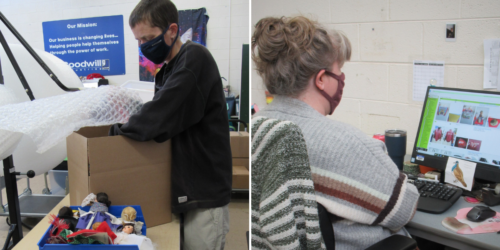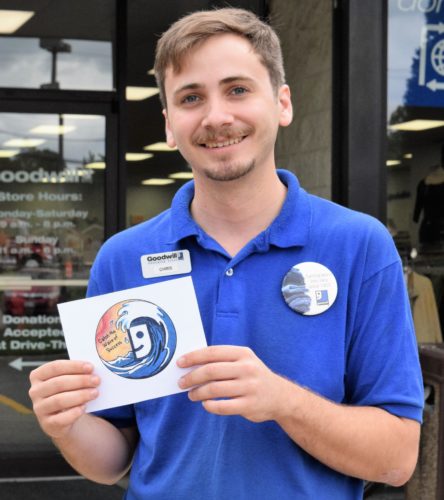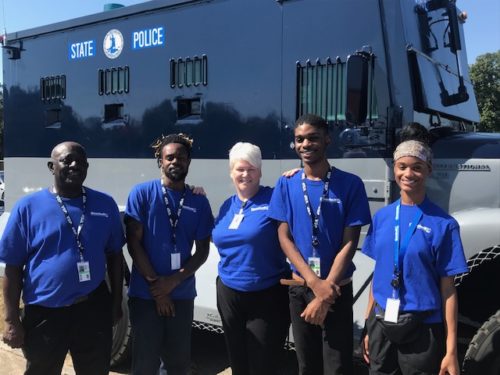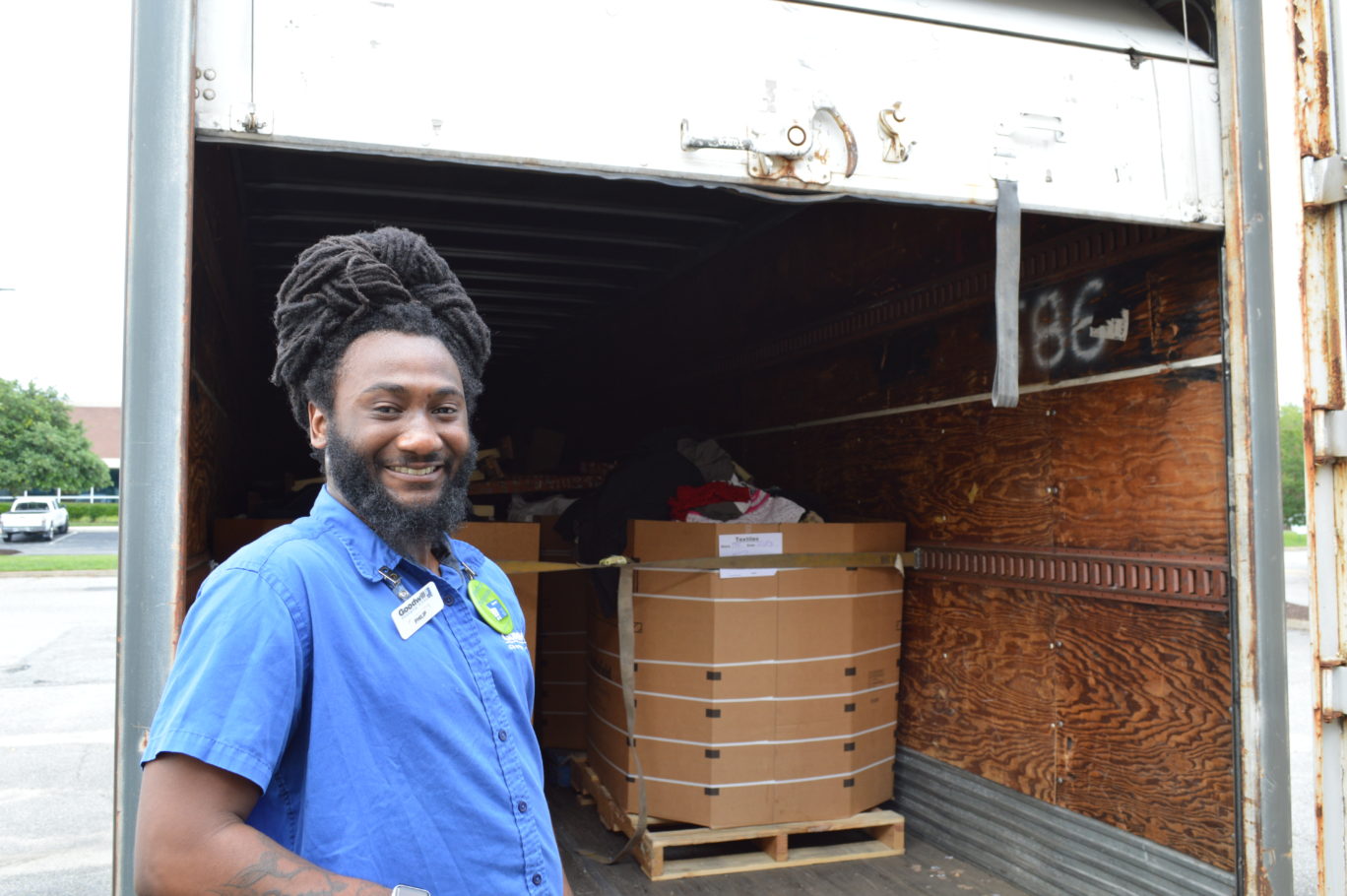
Goodwill Vocational Programs Help New Father Earn Work Experience and Teach Others
July 2, 20182018 is a year of firsts for Philip Sawyer. He welcomed his first child, bought his first car and moved into his first apartment. The Portsmouth native said his job at Goodwill’s Lynnhaven retail store in Virginia Beach has prepared him for the responsibility of raising a son.
“I can teach my son the value of hard work,” Sawyer said. “I will teach him by example, just like I do with my coworkers in the store,” he added. Sawyer is his store’s lead associate, which includes managing other people and requires skills he did not have prior to joining Goodwill. “I learned there is nothing wrong with asking for help. It’s an opportunity to learn new things,” he said.
Sawyer’s journey with Goodwill started five years ago when he was 17 and a student at I.C. Norcom High School in Portsmouth. He participated in Goodwill’s School-To-Work (STW) program, a pre-vocational career pathway model for students receiving special education. STW combines skills-building with real-world, on-the-job training and wage earning.
“Goodwill gave me my first job,” he said. As a textile hanger at Goodwill’s original High Street location in Portsmouth, Sawyer said he learned how to stay out of trouble and focus. “I worked my way up to becoming a donation attendant. But, it took me a while because I had issues being able to multi-task,” he said.
The STW program offers an extra layer of support to participants, helping them find their own work pace and tracking their progress in overcoming their learning barriers. “My managers helped me a lot until I knew how to do the job. They didn’t give up on me,” he said.
His success in STW led Sawyer to transition to Goodwill’s Work Adjustment Training (WAT) program, which provides training and support to people who have difficulty obtaining or maintaining employment due to intellectual or developmental disabilities. Sawyer started working with Latarsha Batiste, a Goodwill employment specialist, at the Lynnhaven retail store in Virginia Beach.
“When I look at back at where Philip was then to where he is now, it’s a complete transformation,” said Batiste. In the WAT program, emphasis is placed on building a participant’s emotional tolerance and overall work behavior.
“Philip had a tough time understanding how to communicate with others in the beginning,” said Batiste. “He would get very nervous, which triggered his anxiety and stunted his work,” she said.
Through skills training sessions and weekly work site visits, Batiste and Sawyer developed strategies that helped him become successful. One of those was breaking down tasks into individual steps to better grasp the information. “When he had to learn a new skill, I was there to provide support until he mastered it. Then, I’d step back and let him find his own pace and comfort zone. He needed to do that to work his way up to reaching his goal of becoming a lead associate,” Batiste said.
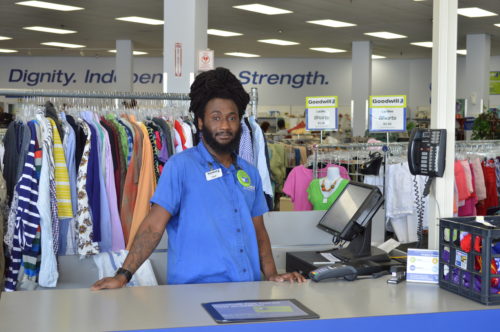
Another strategy the twosome developed was incorporating repetition into his skills training. “We discovered Philip needed to see the task steps written down, then he had to repeat them over and over. Once he completed each task individually, he could combine them into a sequence,” Batiste explained.
“It’s that additional personal support that makes Goodwill’s programs stand out,” said Stephanie Porter-Lopez, Goodwill’s operations manager for vocational services. She adds that Sawyer’s journey through STW and WAT is an example of how Goodwill’s programs are created to continue uplifting an individual’s success after completion.
“School-To-Work gives high school students early exposure to the workforce, which is important to identifying their needs. Once they graduate, WAT is the next step in developing their skills to gain meaningful employment,” Porter-Lopez said.
Sawyer admits he was a bit apprehensive when he was promoted to lead associate. In the position, he opens and closes the store, makes cash deposits, delegates tasks to other associates and works with managers on production and store operations.
“I started to figure out how to solve problems on my own. Now, I use my experience to show other associates how tasks are done. I was in their shoes once, so I know I can help them,” he said.
Sawyer hopes to one day own his own business. “I want people to be able to get to where I am. Goodwill gave me the tools to be a success,” he said.






